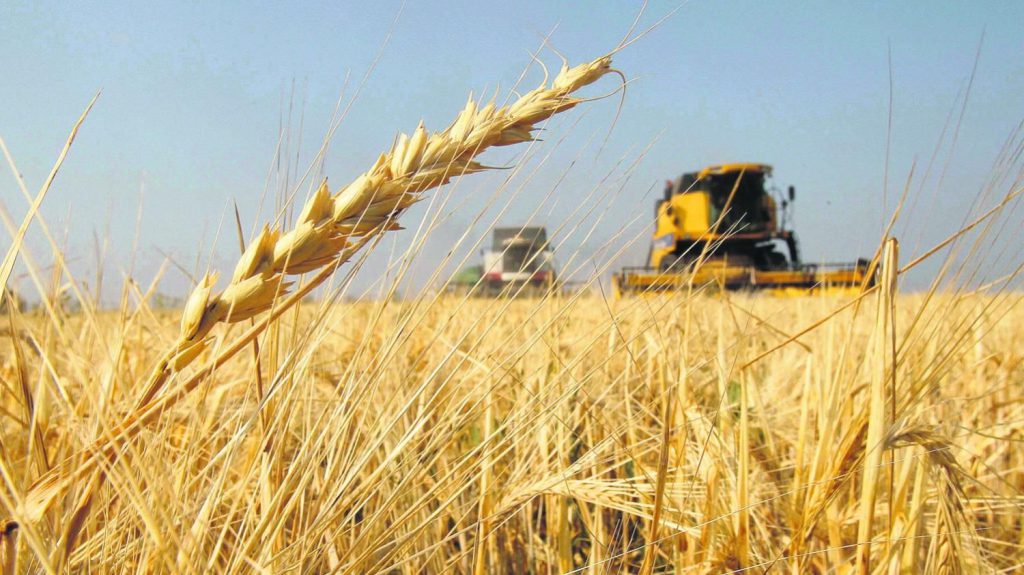RIO DE JANEIRO, BRAZIL – A decision by Jair Bolsonaro‘s government to increase the tariff-free wheat import quota for countries outside Mercosur has sparked protests from Argentine exporters, the main suppliers of grain to Brazil. The Argentine Center of Grain Exporters (CEC) rejected the measure and stated that it deteriorates the access conditions to the Brazilian market.

As of this month, the Brazilian government has authorized an extra 450,000 tons of wheat imports from other countries outside the regional bloc without the ten percent Common External Tariff (TEC). The additional quota is temporary – until November this year – and will be implemented only if the current quota – of 750,000 tons – reaches 85 percent of the total.
The measure was taken by the Executive Secretariat of the Foreign Trade Chamber (CAMEX), linked to the Ministry of Economy, following the recommendation of the Brazilian Wheat Industry Association (ABITRIGO), which claimed uncertainty about the neighboring country’s ability to supply the grain to the Brazilian market until the end of the year.
“The information from importers and specialist houses, who monitor the market, is that there is uncertainty, to date, whether Argentina will supply what we need until the end of the year. The Argentines have greatly expanded the market, diversified to other countries, there was also an increase in price, coupled with the devaluation of the real against the dollar,” says former Ambassador Rubens Barbosa, president of ABITRIGO.
Barbosa also points out that Brazil’s great dependence on imported grain – about 60 percent of the wheat used in the country comes from abroad – adds to the organization’s concern. “Wheat here in Brazil is an essential element, and this dependence is a great vulnerability for us. As nowadays Argentina is responsible for almost all our imports, any failure there can lead to a lack of supply here,” he says.
Brazil consumes, on average, 11 million tons of wheat per year. National production last year [2018/2019 harvest] was 5.4 million. The remainder is imported. By May this year, it had imported 2.7 million tons from Argentina. In recent years, on average, the neighboring country has supplied 90 percent of the volume of wheat imported by Brazil – ranging from five to six million tons per year. The issue lies in what is left to buy for the remainder of the year, as Argentina has also begun to sell to countries it did not previously sell to, and local data show risky mathematics.
According to data from the Argentine Ministry of Agriculture, of the 18.3 million tons available, 14.9 million have already been purchased by exporters. “This shows that they are short to supply the domestic market itself since Argentine mills need around six million tons. They will have to renegotiate contracts they sold to the foreign market, the so-called washout, to keep the country supplied,” says Luiz Fernando Pacheco, of T&F Agro-economic Consultancy.
However, Argentine exporters guarantee that there is no danger of a shortage of wheat for Brazil. “Argentina is in a position to continue supplying Brazil’s demand, as it has done for years, particularly now that the production of Argentine wheat is expected to increase, with the baking quality they are looking for,” said Andrés Alcaraz, manager of Public Affairs at the CEC.
According to the organization, Argentina’s production for the 2019 harvest was 19.5 million tons, of which 12.5 million tons are expected to be exported, with some 5.5 million tons planned for Brazil.
Pacheco, from T&F Consultancy, believes that the Argentines claim that everything is under control is not taken seriously by the wheat sector in Brazil, because the numbers do not add up. “Argentina has greatly increased wheat sales to other countries and their availability for new business is small – since they still need to supply their domestic market,” he explains. “Brazil still needs 1.5 million tons [in addition to what it has imported so far],” he says.
Rubens Barbosa says if Argentina maintains it will have enough wheat, it shouldn’t worry about the new measure. “If there is Argentine wheat, it will be bought from there, it is the cheapest international alternative on the market. If there isn’t, the mills will be able to use that quota,” he says. The president of ABITRIGO also claims the measure was taken as a market and supply measure.
“There was no political or ideological issue because the government here is different from there,” he added. According to CAMEX, the new quota should have a positive impact on the product supply in the country, helping to reduce or contain any increases in the price of wheat.
Source: El País

